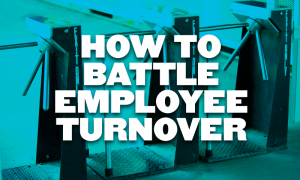Have these questions ready for vendors, internal stakeholders and technology customers.
Of all of the different types of marketing software, conversion optimization platforms are perhaps the easiest to justify. They are directly focused on delivering the business results you desire, whether you’re seeking to optimize white paper downloads, newsletter subscriptions or ecommerce checkouts.
Once you’ve determined a COP makes sense for your business, spend time researching vendors and their capabilities by doing the following.
Identify and contact appropriate vendors
If you’re considering a COP adoption, you’re bound to have challenges you’re trying to overcome. Create use cases describing them. Then develop the questions you’ll need to answer when researching solutions and talking to vendors.
Also, document the capabilities of your current conversion optimization software, the new capabilities you would like to have, and those you can’t live without. This last category is critical, and will help you avoid making a costly mistake.
Begin your research by reading the vendor profiles in this report, then visit the vendor sites for the blogs, e-books and interactive tools that they offer.
Narrow your list of prospective vendors by evaluating their platforms based on your use cases. Submit a list of the requirements you’ve identified to each potential partner and set a timeframe for them to reply.
Finally, decide whether or not you need to engage in a formal RFI/RFP process. This is an individual preference. However, be sure to give the same list of capabilities/use cases to each vendor to facilitate comparison.
Questions for stakeholders as you set up demos
Set up COP demos within a relatively short time frame of each other to help make relevant comparisons. Make sure all the stakeholders in your organization are on the demo call and pay attention to the following:
- How easy is the platform to use for the day-to-day tasks handled by each department that will be using it?
- Does the vendor seem to understand our business and marketing needs?
- Are they showing us our “must-have” features based on the use cases we shared?
Questions for vendors
Questions to ask each vendor include:
- What kind of conversion rate improvements do you typically see with your clients?
- What kind of workflow do you recommend and why have you decided on that approach?
- Does the COP work natively with our current CMS or will we need to perform an integration?
- What is involved in the set-up? Do I just need to add a line or two of code to my site or is it more complex?
- How does the platform integrate with other martech platforms (i.e., CDPs, marketing automation platforms, CRMs, DSPs, DAMs)?
- What reporting do you provide that demonstrates the ROI from our efforts?
- What kind of customer support is included? Can we pick up the phone to report problems?
- Will we have a dedicated account manager and technical support, especially with the initial migration?
- Do you have other clients in our vertical?
- What kind of professional services are available? And how much do they cost?
- How does the company handle requests for product modifications?
- What new features are the vendor considering?
- What’s the long-term product roadmap and launch dates?
Questions for other companies using the technology
Before deciding on a vendor, take the time to speak with several customer references, preferably individuals in a business similar to yours. The vendor should be able to supply you with several references if you can’t identify them yourself.
Use this opportunity to ask any additional questions and verify what you were told during the demo. Make sure that the person you’ve been referred to is a primary user of the platform. Consider also asking these questions:
- Why did you move to a COP?
- Why did you select this platform over others?
- Has this platform lived up to your expectations?
- How long did the software take to implement?
- Who was involved in the implementation?
- Were existing staff retrained to use the COP, or did you have to hire new team members?
- Were there any surprises that you wish you’d known about beforehand?
- Where have you seen the most success? The biggest challenges?
- How are you measuring your own success?
- Has the overall implementation provided positive ROI, including all costs (i.e., license, manhours, etc.)?
- What is the most useful, actionable (favorite) report the platform generates?
- How easy was the set-up process and how long? Did the vendor help?
- How responsive is customer service?
- Has there been any downtime?
- What do you wish they did differently?
- Why would you recommend this platform?
Questions for vendor about pricing
Although not all vendors require an annual contract, many do. Once you’ve selected a vendor, be sure to get in writing a list of what technology and support are covered in the contract.
Ask about what kinds of additional fees might come up:
- Are there charges for custom integrations or additional API calls? If so, how much?
- What is the hourly charge for engineering services, and is there a minimum?
- What partner organizations are available to install and integrate the platform?
- If we later need to put a new-hire through the training we will receive at onboarding, what will that cost?
- What performance levels do you guarantee (response time, availability, problem resolution, accuracy, etc.) and what happens if you don’t meet them?
- What is the “out” clause?
- Will you agree to limits on annual license fee increases?
Obtaining the answers to these types of questions upfront — and having them in writing — will ensure fewer surprises or additional costs down the road.
The post Questions to ask about conversion optimization platforms appeared first on MarTech.
MarTech(57)
Report Post






